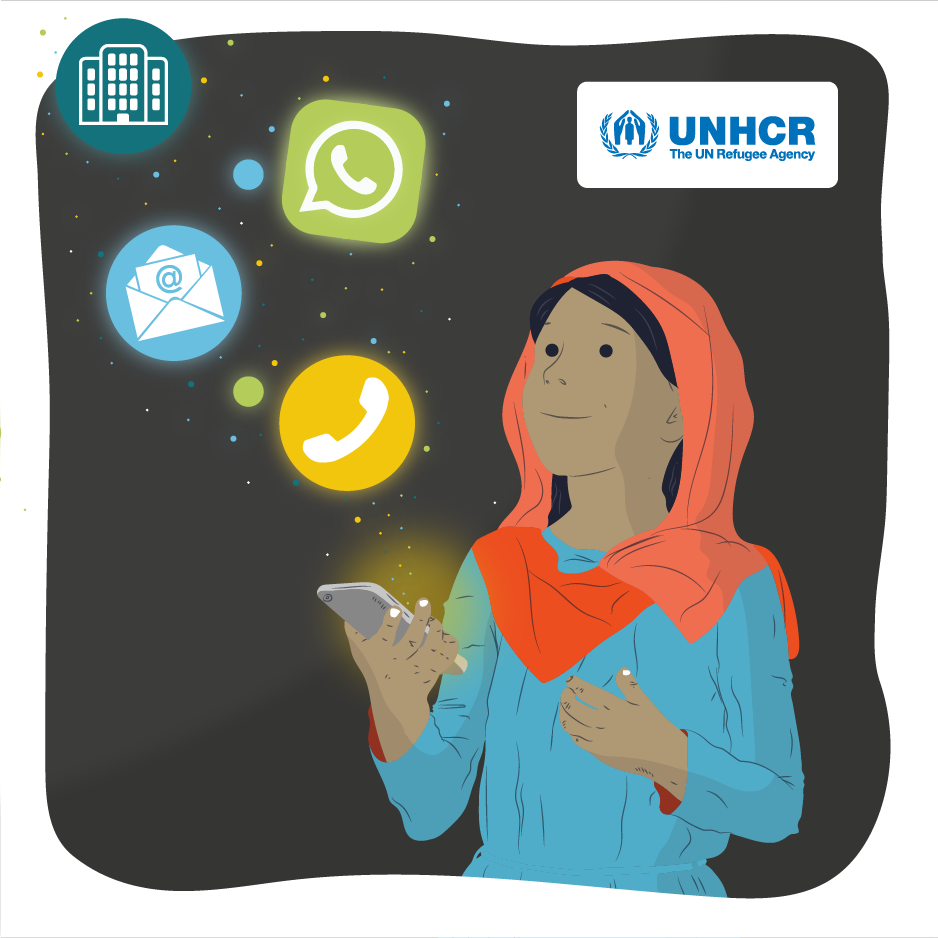
Girls and boys, hello!
Here are some questions many children have, and some answers that can help you stay safe and know your rights.
As a child, you have special rights to stay with your family, to go to school, to play, and to get help if you have been hurt.
Your ideas and feelings matter!
Who is a refugee?
Refugees are people who face risks in their home country due to conflict, or persecution. Refugees had no other choice but to flee and are no longer in their own country.
If they return to their own country, ongoing conflict may put them at risk or they might experience harm because of their nationality, race, religion, political opinion or because they are associated with a particular social group.
There are international laws that require countries to protect refugees, including to not send them back to their countries if it puts them at risk.
UNHCR is responsible to lead and coordinate international efforts to protect and help refugees, as well as to support the response in countries where refugees find themselves.
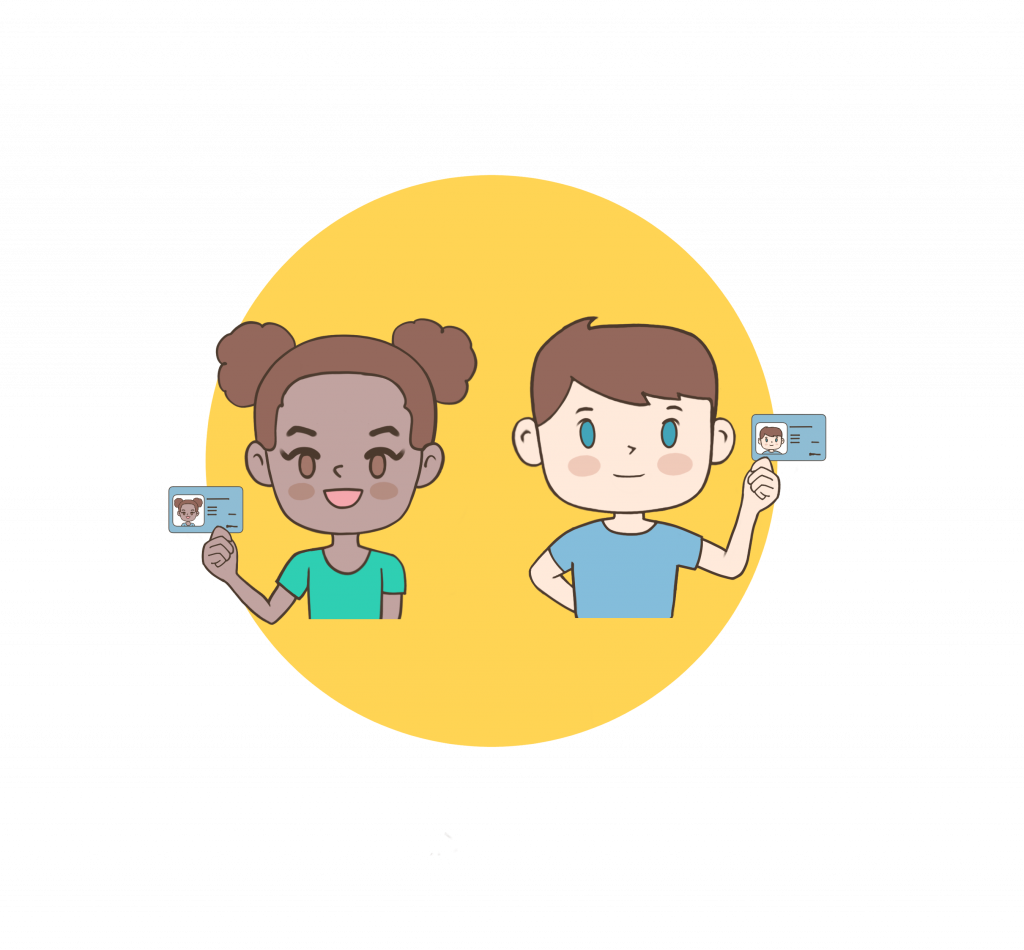
What is important for me to know?
Keep your documents safe: It is very important to keep any identity documents (like a birth certificate, an ID card or passport) in a safe place. Try to make copies of them if you can. Do not let anyone take your documents away, even if they are offering to help you find housing or transportation.
Help is free to all people: Nobody is allowed to make you work or ask for sexual or any other favor in exchange for help. If anyone does this, you can report them to the police (phone number 102) or contact UNHCR and ask for help by sending a message to [email protected], or calling the UNHCR hotline number +79037922279.
Ask adults you trust to help keep you safe: If a stranger offers to take you away from your family to give you something, say ‘no’ and tell an adult you trust. Never agree to meet a stranger without first talking to an adult you trust. If you are in a situation that makes you feel uncomfortable or unsafe, tell someone you trust and ask for help.
REMEMBER: it is not your fault, and you are not to blame if you fall into an uncomfortable situation.
I am in Russia with my family. How can I make sure we stay together and safe?
It is important to do everything you can to stay together with your parents or family.
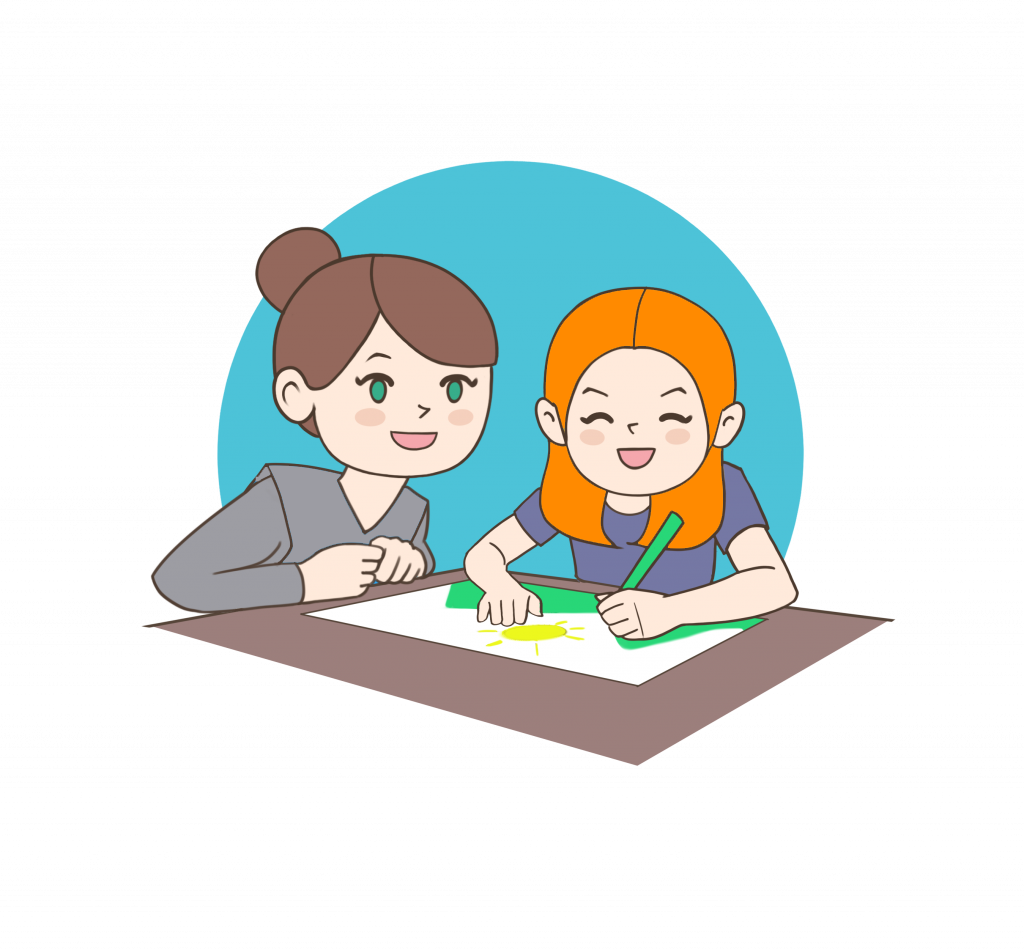
- If you are in a new place: first explore it together with your family or other people you trust.
- When you go outside: first tell a parent or someone you trust (an adult) that you are leaving, where you are going, and when you are coming back.
- Always carry phone numbers of your parents or family but be careful not to let strangers copy them or take them from you.
- Know the address where you and your family are staying and share it with someone you trust.
- Plan together for what to do if you are separated from your family.
I am in Russia without my parents. What kind of help can I get?
If you cannot find or contact your parents, let UNHCR know at [email protected], or contact UNHCR through its hotline number +79037922279. We can help you try to find them and get in touch with them.
The Russian Red Cross and the International Committee of the Red Cross (ICRC) can also help. You can contact the Tracing and Information Center of the Russian Red Cross (+7 (495) 621-71-75). You can also learn more on the ICRC website or contact ICRC by phone (8 800-600 92 69). .
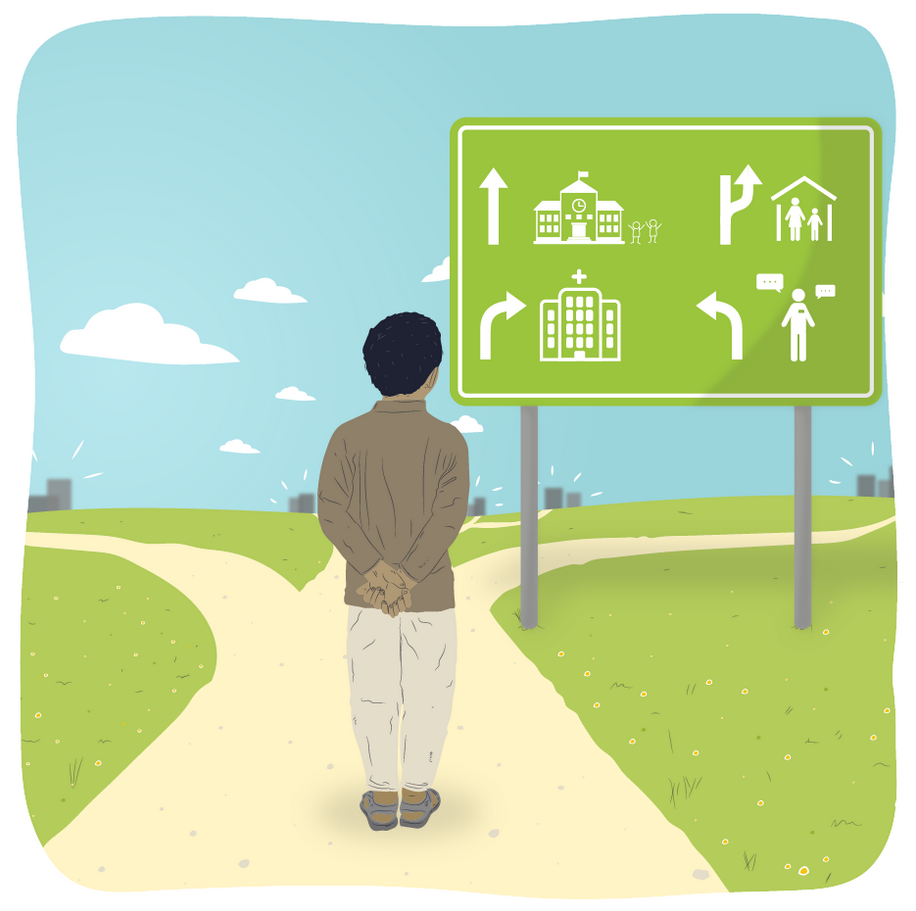
If you are in Russia without any adult family members, you have the right to get help and a safe place to stay. You should tell government authorities and UNHCR. They will help you to stay safe.
If you are with other family members, you can stay with them. It is still important to talk to government authorities, UNHCR, or other organizations and tell them who your parents are, where you think they are, and any contact information you have.
I want to go back to school as soon as possible. What should I do?
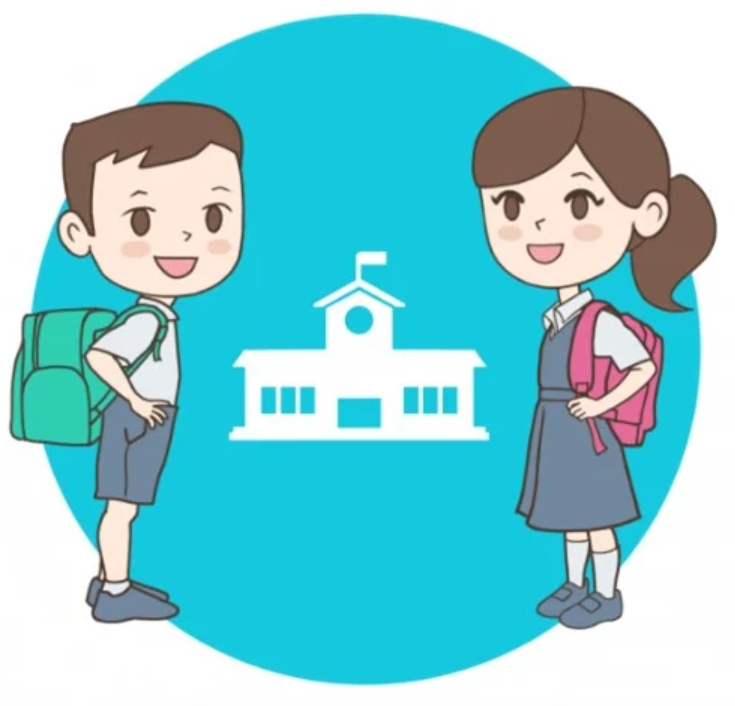
You have a right to go to school in the Russian Federation. If you or any other child is experiencing problems to be enrolled at school you can reach out to UNHCR at [email protected], or by calling the UNHCR hotline number +79037922279.
How can I contact UNHCR?
UNHCR is the United Nations Agency responsible for helping refugees. If you need information or help from UNHCR, you can email us at [email protected], or contact the UNHCR hotline number +79037922279.
It is recommended to talk to your parents or a trusted adult first, but you can also contact us on your own.

Make sure to tell us your name, age, phone/WhatsApp number or email address, or any other way to contact you. It is a good idea to tell us the names of your parents if they are in Russia with you.
If you are not with your parents, you should also tell us that.
If you are using a shared computer to send an email, make sure you sign out of your account when you are done.
Some general advice for keeping yourself safe and protected, if you are not with your family members:
There are signs you can look for to keep yourself safe. For example, be alert to someone who:
- Is asking for your passport or other identification documents (apart from public authorities, for example at border check points);
- Is asking for your phone, laptop or other means of communication;
- Wants to remove you from people you are travelling or living with;
- Is offering you a job that sounds too good to be true;
- Is pressuring you to perform work, services or sex (including to repay ‘debts’);
- Is promising to help you get registered, relocated or resettled to another country against payment;
- Is hiring you, but not paying you, or not giving you decent working conditions or limiting your movement, for example by taking your documents or locking the door.
I feel sad, angry, worried, scared, or confused. Is this normal?
It is normal to feel upset after what you have been through. It may be hard to stop thinking about what you saw or experienced. You may be separated from people you love and worried about them or about what will happen next. You may feel like nothing is familiar. Here are some simple things that may help you cope with this difficult situation:
- Try to keep a routine. Go to sleep and wake up at the same time each day.
- Try to eat regular healthy meals.
- Spend time with your family and friends and do things you all enjoy.
- Move your body: walk or exercise if you can.
- Keep in contact with family and friends. If you cannot contact them now, write letters.
- Help others in your community.
- Take breaks from news and avoid upsetting photos or videos.

If you feel angry or overwhelmed:
- Take a break and focus on breathing slowly for a few minutes.
- Look for quiet or interesting things around you, like the sky, a tree, or bird sounds.
- Talk to someone you trust about how you are feeling.
- If you feel that you need additional support for coping with your stress, let us know contacting us at [email protected], or calling the UNHCR hotline number +79037922279.
Someone has hurt me or I am afraid that someone will. What should I do?
No one has the right to abuse, neglect, or mistreat any child or your family – not strangers, not parents, not relatives, and not teachers. If someone has hurt you, touched you, or treated you in a way that makes you feel uncomfortable or scared, or if you are afraid that someone will, there are adults and organisations that can help.
If someone you know has been hurt by someone, encourage them to get help. You can also make and share a secret word or phrase to use with family and friends if you feel in danger so that they know you are in trouble. If you contact UNHCR, we will do our best to help you.
REMEMBER: this is not your fault, and you are not to blame. You do not need to be ashamed or afraid to ask for help. If you have someone you trust, talk to them about it.
Contact UNHCR at: [email protected], UNHCR hotline number +79037922279.
You can also reach out to the police calling them on 102.
Contacts of UNHCR’s partner organizations
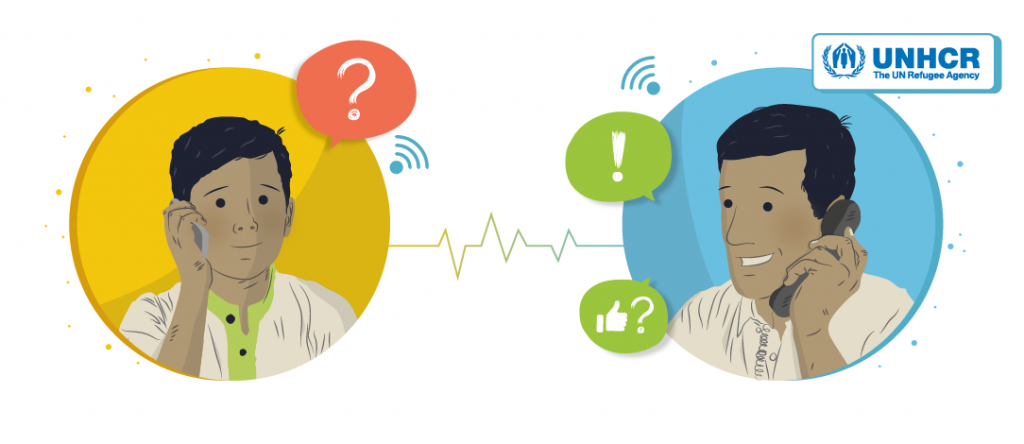
UNHCR provides assistance through partner organizations. Click on the image to view information about our partners.
Contacts are also available here.
